- Home
- Andy McNab
Immediate Action Page 8
Immediate Action Read online
Page 8
If you don't you're fucking late."
The DS went; he really motored. Within five minutes the tightly packed group was strung out along the track.
I noticed several very fit-looking faces that I hadn't seen before and that were overtaking me. It was the first time I'd seen people from the squadrons; apparently there was an open invite for anybody who happened to be in camp to go and do the Fan Dance. All these characters turned up in Range Rovers, with flasks of tea. They got the bergens on, and off they went. I was feeling really fit and confident, but these blokes were just steaming past, especially on the uphill sections. It really pissed me off; they'd jog up alongside the DS, have a bit of a chat, then accelerate over the horizon.
My chest heaved up and down until I got my second wind, and then I started to sweat. It started to get in my eyes and sting the sores on my back. Within twenty minutes I was soaking wet, but my breathing was regulated, and I was feeling good. I knew where I was going, and though it was wet underfoot, the weather was fine.
I arrived at Torpanto in good shape, huffing and puffing but confident.
It wasn't too hot a day, and I wasn't having to stop too often for a drink. I gave my name to the DS, turned around, then did the whole route in reverse. I sang the same song to myself in my head, over and over. It was a rap song; the music was just coming to the UK, and I hated it. I still sang it, though.
It was a matter of running downhill and on flat ground and of tabbin as hard as we could uphill. That was all there was to it, arms swinging, legs pumping. I passed Max on the way. He was going well, with the water pipe flailing behind him in his slipstream.
Out of the 180 who had started the week, 100 of us had got as far as the Fan Dance. By the end of the day, another 30 had been binned.
The Fan, we were told, was a benchmark. If we couldn't do the Fan, there was no way we had the stamina or physical aptitude to carry on.
That night Peter, the chief instructor, walked around the room.
He was about five feet five inches tall and looked like everybody's favorite uncle. He inspected all the weird and wonderful drinks that were lying on the lockers and said, in a very slow Birmingham accent that never got above 2,000 revs, "All this shit, you can take it if you like-it's up to you. But the best thing is, two pints of Guinness and a bag of chips at the end of each day."
Dutifully we went down to the town and sank two pints of Guinness and bought a bag of chips each at the chippie.
Everybody was sorting out his feet with whatever magic potion and strapping his toes up. I put orthopedic felt on my heels and sorted out my blisters. The army was full of recipes for how to get rid of the things, but I had always found that the best thing was to pierce them at the edge with a needle sterilized in a flame, squeeze all the muck out, and just throw plaster over. There wasn't a lot more that could be done.
The second week started. I reached the wagon after a particularly grueling run and took stock. My feet and legs ached; my thigh muscles were killing me. My shoulders were badly sore and felt almost dislocated, as if they had dropped. I had a pain in the small of my back; as I carried the bergen uphill, I leaned forward to push against the weight. When I finished and dropped my bergen, it felt as if I was floating on air. I pulled my tracksuit on and got all nice and warm drinking my flask of tea as we were driving back.
As we relaxed on the wagons, our muscles seized up.
Getting off again, we looked like a load of geriatrics as we stumbled off the tailgate and hobbled back to our rooms, dragging our sleeping bags along the ground. I looked in the mirror. I looked just how I felt. My hair was sticking up where I had been sweating, and it was covered in mud and twigs.
We kept our bergens by our beds. There was a drying room for all the wet clothing, but it was pointless washing it; it was only going to get soaking wet and filthy again, so we put it in the drying room for a while, then rested it on our bergens for the next day.
After a while we did start talking to one another, but the only topic was Selection. Every time I came back off a day's tabbing I wanted to find out how many people had been binned. The more people the better. I was chuffed that thirty people failed the Fan Dance.
Great, I thought, it made me feel as if I was doing well.
The daily tabs now ranged from fifteen to sixty-four kilometers, and night marches were introduced. Day after day it was the same routine.
We'd get the timings to go on the wagons in the morning, go to where the tab was going to start, do it, and get back at night.
Then the Darby and Joan Club would go shuffling back to the rooms, dump their kit, put their stuff in the drying room, have a bath or a shower, have something to eat, and get their heads down. The days of Guinness and chips were over.
Nobody told us the timings for the day, so we didn't know how far we were going, where we were going, what route we were taking, or how long we had; we had no option but to go as fast as we could, and that was where the map-reading skills came in. If I came to a reentrant (valley), I didn't go down and then up; I'd see if it might be worth contouring around the longer distance.
Discipline was uncalled for. All they'd say was "Be in the quadrangle for six o'clock." We'd turn up; they'd call out our names and tell us what trucks to get on. The majority of people were getting in their sleeping bags or putting their bobble hats on, resting and drinking flasks of tea. Then, all too soon, we'd get to the checkpoint, clamber out, and they'd call us forward one by one and send us on our way.
The training team told us nothing. We were the ones who wanted to be there; they weren't soliciting for our custom. Their attitude seemed to be: The course is here if you want to do it.
"Red fifteen?"
I went over to the DS.
"Name?"
"McNab."
"Where are you?"
I had to show him on the map where I was. If you put your finger on a map, you're covering an area of five hundred or six hundred meters-unless you've got big stubby fingers, in which case it might be a kilometer.
You've got to point exactly where you are with a blade of grass or a twig.
"You are going to Grid four-four-one-three-five-three.
Show me where that is."
I showed him.
"Show me what direction you are going in."
I took my bearing and showed him.
He said, "Well you'd better get started because the clock's running."
There, was one bloke in my group, Trey, who was so hyper and revved up that he ended up doing everything the wrong way around.
Instead of going north, he would go south. He got off the wagon one day and got called over by the DS.
He said, "Where are you?"
He showed him on the map.
"Which way are you going?"
He pointed the way he was going, which was correct, then went off in totally the wrong direction.
The DS turned around to us and said, "Where the hell's he going?"
He let him go for about a hundred meters, then shouted: "Oi, dickhead, come back here! For fuck's sake, where are you going? Show us your bearing."
Trey showed him, and the DS said, "Then fucking go in that direction.
You've already wasted three minutes."
A lot of the time, if I was going for a high point, I could see it, and it never got any closer. My mind would start wandering off on to different things. Sometimes I'd start singing stupid songs to myself in my mind, or little advertising that I'd always hated anyway.
I'd get to the checkpoint and lean forward, my hands on my knees to rest the shoulders.
The DS'd say, "Show me where you are." Then: "You are going to Grid three-four-five-six-seven-eight. Show me what direction that is."
Off I'd go.
Sometimes I'd get to a checkpoint where they'd have a set of scales. For that day's marches, perhaps the bergen had to weigh forty pounds. They'd check the weight, and if a bloke was under, they'd put a big rock in his pack, sign it with a lu
micolor, and radio on to the next couple of checkpoints that Blue 27 had a rock in his bergen because he was a snidey bastard. It meant that instead of carrying forty pounds, he would now be humping around with fifty-five pounds for the rest of the day. When measured in sweat and blisters, fifteen pounds is a lot of difference.
The big mistake was to take forty pounds as the all-in start weight of the bergen, including the water. As soon as you'd drunk one pint, you'd be under;weight. When they said forty pounds, they meant forty pounds at the end of the day, not the beginning.
When we came in off the hills, we'd be sorting ourselves out. The training team would come around, calling out names. These, we soon learned, were the people who were getting binned.
If we'd had a bad day, we'd get a "gypsy's warning."
The sergeant major would say, "The following people, come and see me."
Those people would gather around him. He'd say, "You didn't do very well yesterday. This is a gypsy's; you'd better sort your shit out because next time you'll be gone."
If anybody had already had a gypsy's and his name was called, he could assume the worst.
I'd be feeling fairly confident if I was in the first wagon on the way back. Second wagon, I was unsure but not too worried. Third wagon, I would have been shirting myself. It happened to me only once.
Most days, however, I was looking at other people, chuffed that these six-foot-four-inch blond-haired, good-looking thoroughbreds were getting the shove.
I'd say, "That's a shame," but inside I'd be thinking, Good shit!
Everybody was for himself; everybody wanted to pass.
"The point is," the DS said, "if you've got to be in a position to give covering fire with your GPMG (general purpose machine gun) in six hours and forty-five minutes' time, it's no good being there in six hours, forty-five and a half minutes because you're late. You might as well be ten hours late. If you're given a timing, you must be there.
The attack group might have to go in without fire cover because their attack might be time coordinated with another attack that's going in three or four kilometers away. You must keep your timings; lives might depend on it one day."
The training team did the course every day as well, and they would vary the time limit according to the conditions. If there was a forty-mile-an-hour wind, they took it into consideration. It was then up to us to be as good as they were.
The big thing was Platform 4. At Hereford railway station, Platform 4 went to London. "It's Platform four for you" was the Regiment's way of saying, "Thank you and good night."
Of course, by the time people got back to their units, the reason they left Selection was a "back or leg injury," but they shouldn't have been embarrassed: They had more guts turning up for Selection in the first place than the people they were giving excuses to.
The Royal Signals people definitely had the edge on tuning in and being happy with the environment. At that time, if a bloke wanted to go for the Regiment from the signals, he first had to be in 264, the signals squadron in Hereford. So these guys were in the environment to begin with, and they had the Black Mountains,forty-five minutes up the road to train on. A lot of them were going home of an evening. In the beginning I felt they had an unfair advantage. Then I came to see that when it came down to it, they didn't; they still had to get the boots on and go up the hill with everyone else.
I was looking at the blokes who'd done Selection once already; maybe they had got up to the jungle phase of continuation training and then failed. I was hoping that they were going to pass this first stage again. If I got to the jungle as well-and I hoped with them-they would know what was going on.
Some people had turned up looking fearsomely fit. I judged myself all the time against them. A fellow called Andy Baxter was one of the training team. We went out for a run with him one day, stopping to do press-ups and sit-ups. Andy took his shirt off and revealed that besides film-star good looks he had a superb physique.
He should have been on the cover of Playgirl. I'd always been really fit in the battalion, but I thought, There's no way I'm going to pass this; I don't stand a chance here; how the hell am I going to be like him? Nothing fazed him at all. We'd come back off the runs gasping for breath, and he'd saunter back in, laughing and joking, and have a cup of tea. It annoyed me that compared with some of these blokes, I was a bag of shit, sweating and knackered. I had to keep reminding myself that it wasn't Baxter I was competing against; it was McNab.
If passing Selection had been an obsession before I arrived at Stirling Lines, it was now a pathological fixation. The longer I was there, the more I wanted to stay.
The atmosphere was so different from an infantry battalion, so laid back, so reliant on self-discipline. Everybody was on first-name terms.
No one hassled us; all they would say was "Parade is twelve o'clock" and just expect us to be there. If we weren't, it must mean we didn't want to be there, so we could go. Each night I said to myself. "I really want to be here; this is the place I want to be."
If I didn't pass Selection, I'd get out of the army.
There was no way I could see myself fitting back in the battalion.
I'd seen how the other half lived, and I wanted my share. All the facilities were there, everything from a library to a swimming pool.
The medical center was open for us every night when we got back.
I went there to get some bandages for my feet. it wasn't like going into a medical center in the battalion, where I'd have been hanging around so long my feet would have healed of their own accord.
They treated me as a person rather than a soldier; as I limped back to my room, I said to myself again: I want to stay here!
All of us Green jackets got up to the third week; then Bob got binned.
His timings weren't good enough. He didn't seem too worried about it as he packed his gear to leave.
Next day we had finished one march and were moving to a forestry block to spend the next few hours sorting ourselves out and having something to eat before a night tab. Dave was not feeling too good about it, and he had already had a gypsy's. As we sat around a hexy burner and sorted our feet out, waiting for dark, he said, "'That pisses me off is that they don't tell us if we've failed straightaway. I might be doing this sodding night march for nothing."
He was. The next day, almost the end of the third week, he was also sent to Platform 4, timings not good enough. And Max, who was starting to look the worse for wear, got a gypsy's.
"It was because I kept falling over," Dave said to me.
"And the reason I keep falling over is that my feet aren't big enough to support me. I'v-e only got size sevens."
I shook his hand and watched him go. I'd miss the silly bastard.
A couple of days after that, in the final week, I was coming off Fan-Fawr and saw Max still on his way up, water tube waving in the wind, wearing a T-shirt with a motif on it, something to do with oranges. His big bushy moustahe was full of snot, and he was in shit state.
He said, "I'm having a bad time here, Andy. My timings are bad."
H was well and truly out of it-as if he was drunk, but without the happiness.
I nodded and said, "Sorry," but obviously I still had to crack on myself.
That night he went. Out of the original six Green jackets three were left for the last three days of Test Week.
Key went the next day. As usual, he wasn't that fussed.
"I tried and failed." He grinned. "At least I don't have to think of it again. Back to football and a few good nights out at Longbridge, that's me."
I was sad to see them all go. I would miss their friendship and banter.
Johnny Two-Combs was still there, and no way was he not going to pass. I didn't see that much of him as he was in a different block and by now, if I wasn't tabbing, I was sleeping.
"Just got to carry on the way I'm going," I kept saying to myself.
"Just don't get an injury."
I got a gypsy's the next day.
/>
We were on a thirty-five-kilometer tab in the Elan valley, and I'd had a really bad day. I had no injuries, but I just found it hard going. It was as If my legs didn't want to play; my body was going at 100 mph but my legs were moving at 50. I used to have a dream as a child that I was running away from something and though my whole mental state was in a frenzy, my body would be in slow motion.
Now it was happening in real life. I was on the second group of wagons, which was dodgy ground.
The following morning we were waiting to be called on the vehicles. The chief instructor started to call out the names of people he wanted to see. I was one of them.
"Your timings were not good enough yesterday," he said. "You will have to pull your finger out for the last two days or it's Platform four."
It pissed me off, but there were only the Sketch Map and Endurance marches left.
Sketch Map involved using a hand-drawn map rather than a proper one. We had to cover thirty-five kilometers over different checkpoints. No problem, I was cruising. I thought I'd cracked it. I knew the ground because I'd done all the recces, I'd been up there; I knew where I was going.
I was coming up toward the Fan and came to a forestry block about a kilometer square that I would have to go around. It wasn't a fluffy little wood; this was a major Forestry Commission fir plantation.
Looking down on it from the high ground, I could see that a firebreak went right through the middle. I started to push through, and made good progress for about the first two hundred meters. Then I got disoriented. I had to stop for several minutes and take a bearing.
I was severely pissed off with myself. I had to get on my hands and knees and start pushing myself through because the trees were planted so closely together. I was shouting and hollering to myself.
I'd gone too far in to come back out and go around; it was just a matter of cracking on.
Deep down I knew I was going to be late. I knew I had fucked up.
By the time I came out I had cuts on my face and hands, and I was covered in blood. But I still went on.
There might be a chance.

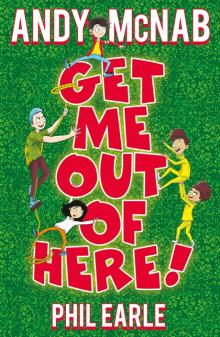 Get Me Out of Here!
Get Me Out of Here!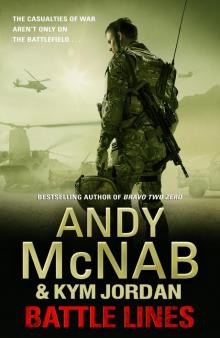 Battle Lines
Battle Lines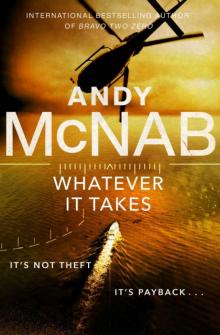 Whatever It Takes
Whatever It Takes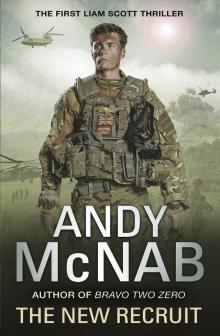 The New Recruit
The New Recruit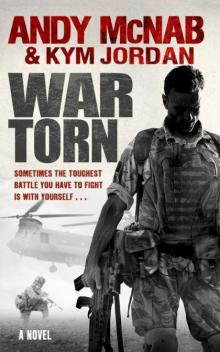 War Torn
War Torn Brute Force
Brute Force Crossfire
Crossfire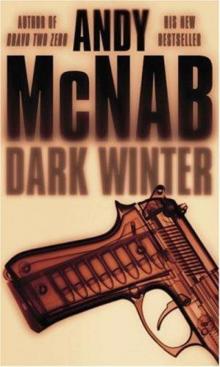 Dark Winter ns-6
Dark Winter ns-6 The Grey Man
The Grey Man Spoken from the Front
Spoken from the Front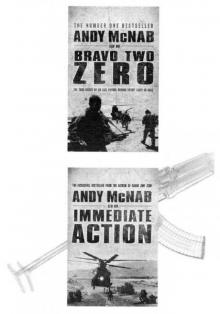 Meltdown
Meltdown Recoil
Recoil Nick Stone 1 - Remote Control.
Nick Stone 1 - Remote Control.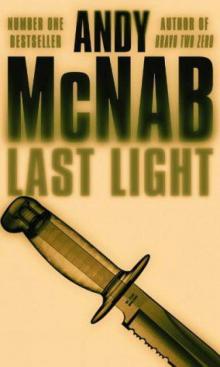 Last Light ns-4
Last Light ns-4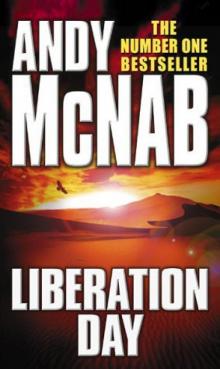 Liberation day
Liberation day Deep Black
Deep Black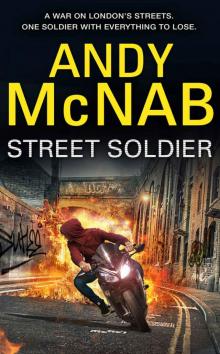 Street Soldier
Street Soldier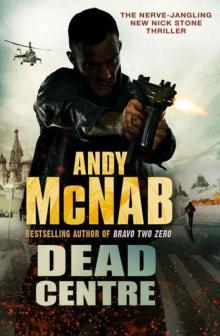 Dead Centre ns-14
Dead Centre ns-14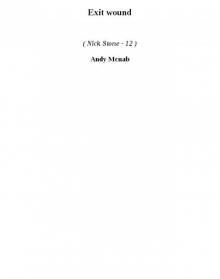 Exit wound ns-12
Exit wound ns-12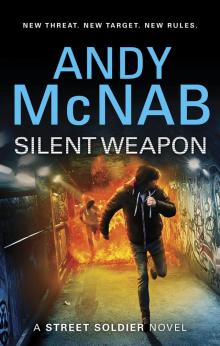 Silent Weapon
Silent Weapon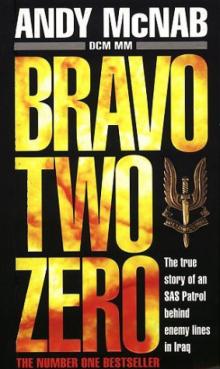 Bravo two zero
Bravo two zero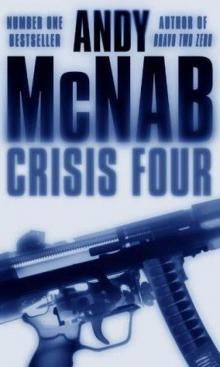 Crisis Four ns-2
Crisis Four ns-2 Red Notice
Red Notice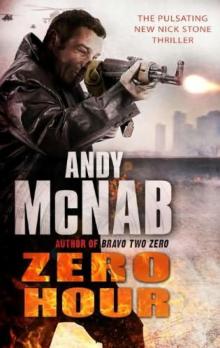 NS13 Zero Hour
NS13 Zero Hour Firewall
Firewall Last Light
Last Light Aggressor
Aggressor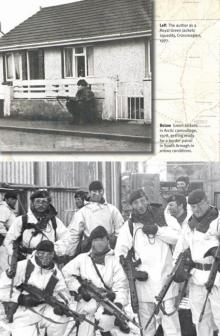 Seven Troop
Seven Troop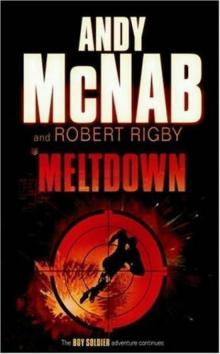 Meltdown bs-4
Meltdown bs-4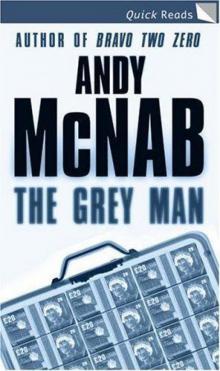 The Grey Man (quick reads)
The Grey Man (quick reads)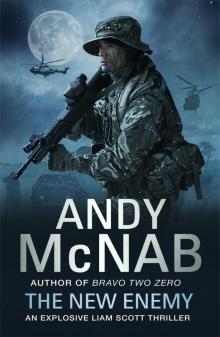 The New Enemy
The New Enemy Avenger
Avenger FireWall ns-3
FireWall ns-3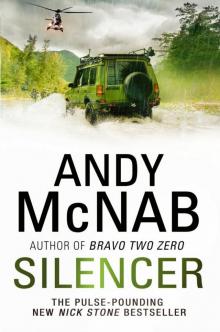 Silencer
Silencer Last Night-Another Soldier…
Last Night-Another Soldier…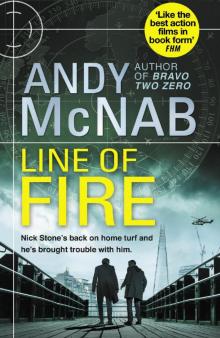 Line of Fire:
Line of Fire: Detonator
Detonator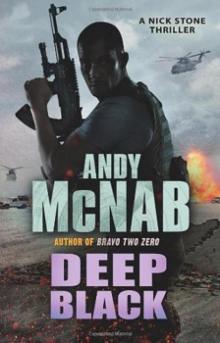 Deep Black ns-7
Deep Black ns-7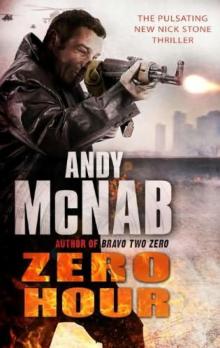 Zero Hour (2010) ns-13
Zero Hour (2010) ns-13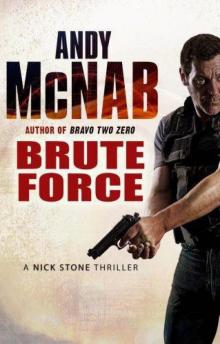 Brute Force ns-11
Brute Force ns-11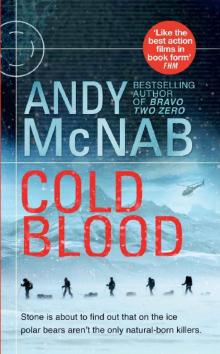 Cold Blood
Cold Blood Terminal Velocity
Terminal Velocity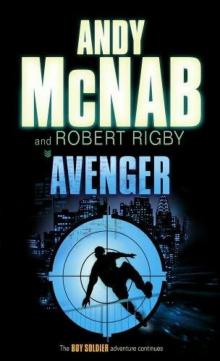 Avenger bs-3
Avenger bs-3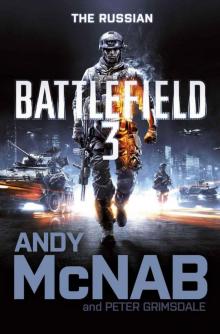 Battlefield 3: The Russian
Battlefield 3: The Russian DropZone
DropZone Zero Hour
Zero Hour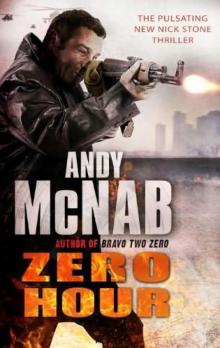 NS13 Zero Hour (2010)
NS13 Zero Hour (2010)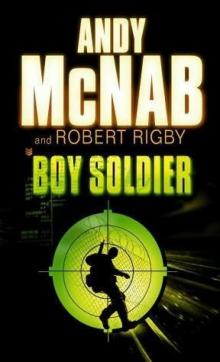 Boy soldier bs-1
Boy soldier bs-1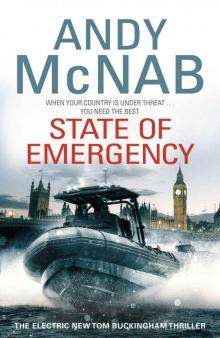 State Of Emergency: (Tom Buckingham Thriller 3)
State Of Emergency: (Tom Buckingham Thriller 3)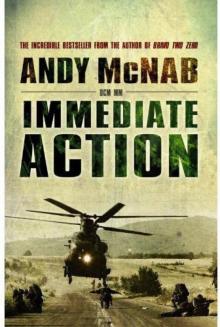 Immediate Action
Immediate Action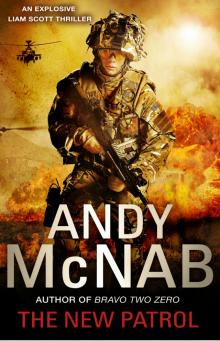 The New Patrol
The New Patrol Crisis Four
Crisis Four Boy Soldier
Boy Soldier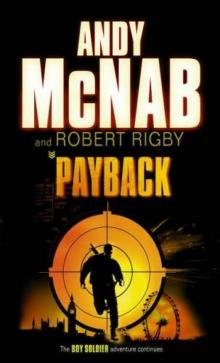 Payback bs-2
Payback bs-2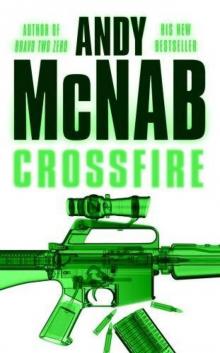 Crossfire ns-10
Crossfire ns-10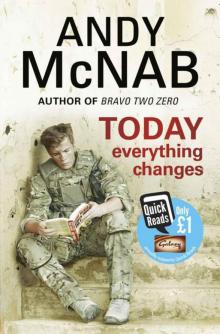 Today Everything Changes: Quick Read
Today Everything Changes: Quick Read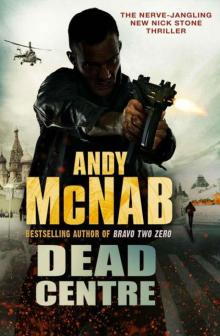 Dead Centre
Dead Centre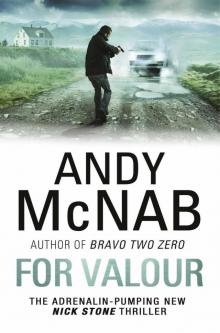 For Valour
For Valour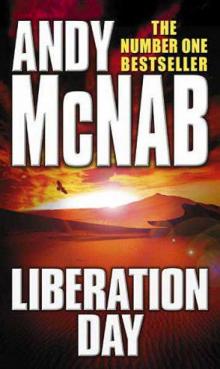 Liberation Day ns-5
Liberation Day ns-5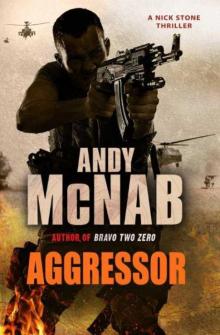 Aggressor ns-8
Aggressor ns-8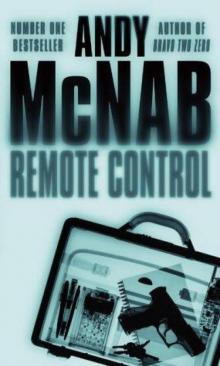 Remote Control ns-1
Remote Control ns-1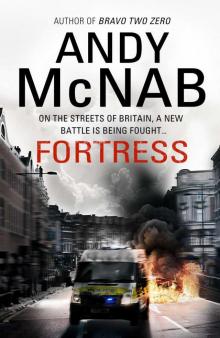 Fortress
Fortress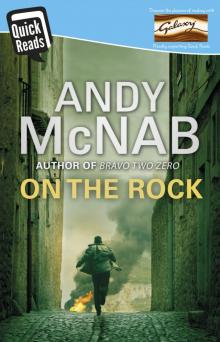 On the Rock
On the Rock Dark Winter
Dark Winter